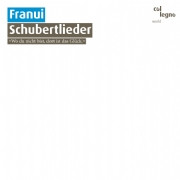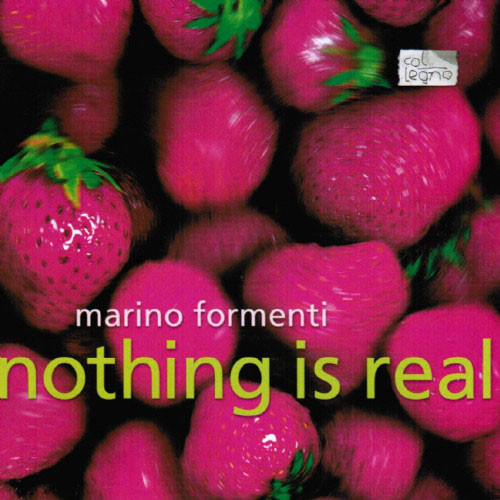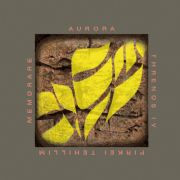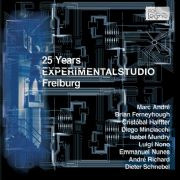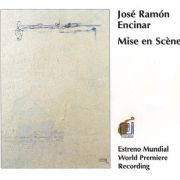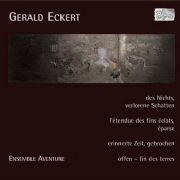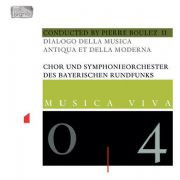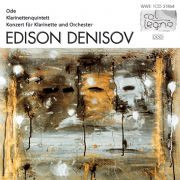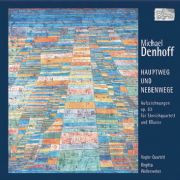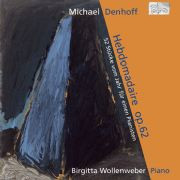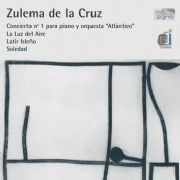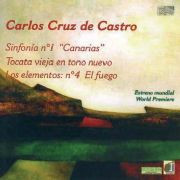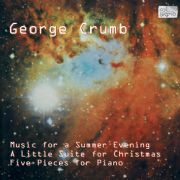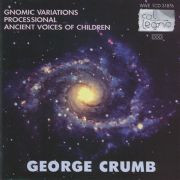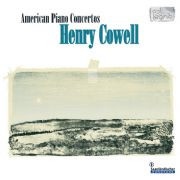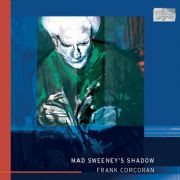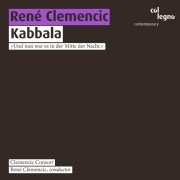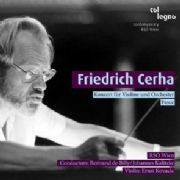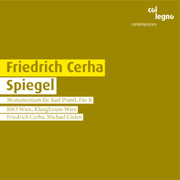★Col Legno
Schubertlieder
Most of Franui's musicians are from East Tyrol. In fact, Franui is the name of a mountain pasture in the Villgraten valley, some 2,000 meters above sea level: a fertile breeding ground for creative flights of fancy, as is evidenced by these original arrangements for an enchanting dance band. With woodwind, brass, harp, zither, dulcimer, violin and double bass Franui not only reveal the very core of the folk music influences in Schubert's music, but take us further into the suburban taverns of Vi…
Nothing Is Real
Each of the piano pieces assembled here is a gemstone in its own right; even so, it is their arrangement side by side that makes this album a unique experience. ...The outstanding pianist Marino Formenti begins his journey with Beat Furrer's Voicelessness – The Snow has no Voice (1986), a piece reminiscent of Debussy's Des pas sur la neige and depicting the same profound hopelessness. John Cage's Music Walk (1958), "for one or more pianists who also play radios and produce auxiliary sounds by si…
AURORA / THRENOS IV / PIRKEI TEHILLIM / MEMORARE
Titles often occur to Reinhard David Flender only after he has completed a composition. When listening to Aurora, for example, "a visual association is evoked. The piece starts with a long double bass tone. Then a high pitched tone played by oboe and harp comes in, briefly at first, repeated at intervals; as the piece proceeds it is joined by other tones, until a short melody emerges. Thus the title Aurora, the first rays of sun at the crack of dawn, which then give way to a shape: the dome of t…
Glaciers in Extinction
One can hardly imagine a more striking description of the anticipated disappearance of these ice giants: Glaciers in Extinction is a warning by sounds. Fabbriciani’s deep, grieving sounds tell not only of the catastrophe to come but of the unfathomable origin of existence itself. The sound of nature revealed, and not for glaciologists only: This concerns all of us. The famous Italian flautist and, with his hyperbass flute, much sought-after interpreter of New Music has himself composed powerful …
Experimentalstudio Freiburg 25 Jahre
This Three-CD box set celebrated the twenty-fifth anniversary of the world’s most renowned studio for electronic music. Who didn’t experiment there and “make the seemingly solid boundaries of the doable tremble”? Stockhausen, Nono, Ferneyhough, Minciacchi, Andre Richard, and Nunes did – to name only a very few. The reissue of this box set is dedicated in gratitude to Andre Richard: he will be leaving the institute after this year.
Mise en Scène
"I wrote Mise en Scène between July 1992 and May 1994. Apart from the four additional clarinets involved besides the soloist (two of them as 'doppelgangers' of the soloist) having to move around in the hall during the five movements of the composition, the choice of title is also justified by a number of scenographic instructions that constituted an, albeit vague, starting point for the whole composition." For his concerto José Ramón Encinar also falls back on his own compositions for clarinet, …
des Nichts, verlorene Schatten / l\'étendue des fins éclats, épa
Concentrated chamber music: Gerald Eckert captures the world of sounds in its manifold forms and shapes with meticulous care and maximum individuality.
Dialogo della musica antiqua et della moderna - Musica Viva 04
Pierre Boulez as conductor – in a musical discourse among antiquity, middle ages and classical modernism.
Ode / Clarinet Quintet / Concerto for Clarinet and Orchestra
Like Brahms in his later years, Edison Denisov, the European-oriented composer firmly rooted in Russian-Siberian soil, developed a certain partiality to the tonal qualities of the clarinet. Eduard Brunner, clarinet virtuoso and former soloist of the Symhonieorchester des Bayerischen Rundfunks, got acquainted with Denisov's music in the mid 1960s, and has been playing Denisov's works regularly ever since. Brunner's performance of the Ode, a composition revealing an original "Russian" element but …
Hauptweg und Nebenwege
A miniature for every day, a movement for every month, a cycle for the whole year: Hauptweg und Nebenwege, a musical diary inspired by Paul Klee.
Hebdomadaire op. 62
52 pieces of the year for a pianist: in Hebdomadaire, Michael Denhoff carries on the noble tradition of cyclic piano music in his own inimitable way.
Concierto n° 1 para piano y orquesta \'Atlántico\' / La Luz del
Canary folklore: the Concierto Atlántico is based on two motifs that have been "united with the almost obsessive rhythm of the tango herréno, an essential element of the oldest folk music of the island." The piano piece Latir Isleño, on the other hand, is based on a well-known Canarian folksong, Arrorò. But traditional Canarian music is merely the starting point for these works, not their destination; their structure, like that of La Luz del Aire (The light of air), is determined by exact mathem…
Sinfonía n° 1 \'Canarias\' / Tocata vieja en tono nuevo / Los e
The Sinfonia n° 1 "Canarias" is dedicated to the composer's father, an old Canary Islander aged 94 at the time it was written. He was the reason why Cruz de Castro decided to focus the composition's middle movement wholly on the Canarian Folía. This special, important form of Canarian folk music appears both in its original form and in variations: "That's the way it should be: from the simple to the complex, from the melody line to the concentration: a harmonious whole." (Cruz de Castro) The Toc…
Music for a Summer Evening / A Little Suite for Christmas / Five
Music for a Summer Evening (1974) is the third part of the "cosmic drama" Macrocosmos, which investigates the relations between the innermost human soul and the vastness of the cosmos; relations that also determine the temporal, dynamic and tonal dimensions of the composition. Its immense material extravagance is reflected by a range of some 70 percussion instruments; in addition, the two pianists are required to perform a variety of different techniques, such as pizzicatos, flageolets, etc. A s…
Gnomic Variations / Processional / Ancient Voices of Children
On reading the title Gnomic Variations, lovers of piano music might fancy themselves to be in a kind of "Grieg's World," but the truth is far from it: the title of the piano solo, completed in 1981, does not refer to any thieving Irish gnomes but solely to the conciseness of the structure of the work. "Gnomic" here means expressing an idea in brief words, or, simply, describing a maxim as accurately as possible. The Gnomic Variations consist of three parts, comprising a total of 18 variations. A…
American Piano Concertos
The great creator of musical novelties hardly ever departed from the melodic harmonious basis, though: his major achievements included not least the development of new techniques for piano playing, which he also integrated in his book New Musical Resources. His Concerto for Piano and Orchestra (1928) appears to put the spotlight on the technical and musical-historical findings, whereas in pieces such as Irish Jig and Four Irish Tales he openly and merrily inquires into his Irish background, with…
Mad Sweeney\'s shadow
In Mad Sweeney's shadow: mass, piano trio, lieder cycle, wind quintet – for each of these "classic" formats Corcoran has created his own original, archaic sound.
Kabbala
Kabbala, oratorio in Hebrew, originally composed for the „Mittelfest“ in Cividale del Friuli/Italy and first released by col legno in 1993, has been re-released.
Konzert für Violine und Orchester / Fasce
Rhapsodic, lyrical, virtuoso, and, in the end, even amusing: all these attributes come to mind as Cerha's violin concerto is finished off with a charming punch line.
Spiegel
As fascinating as ever: Cerha's monumental opus Spiegel, in which he investigates fundamental phenomena of musical creation.
